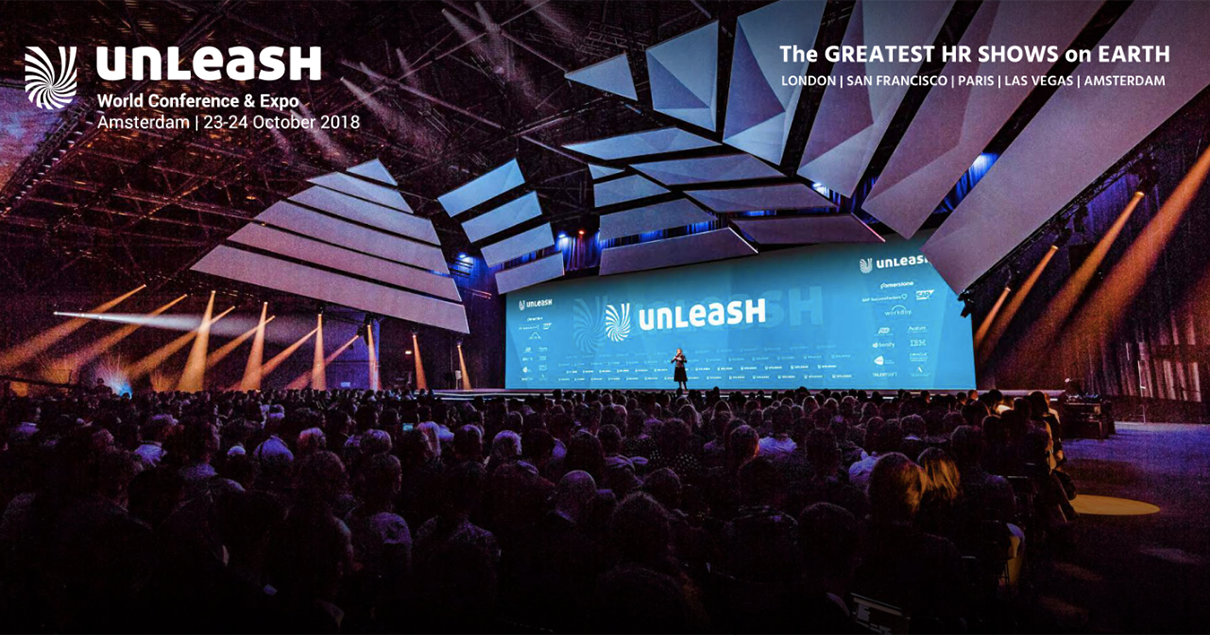As the HR space continues to evolve, technology typically dominates the discussion, yet we must not forget the importance of personal relationships. New technology, in particular artificial intelligence (AI) and automation tools, are impacting our industry, driving productivity and efficiency. At the same time, organizations need to understand that relationship health is also something they should care about and nurture.
These topics were at the center of discussion at Unleash Amsterdam. Following successful events in Las Vegas and London, it brought together 5,000 HR professionals to discuss the trends that are shaping the industry.
Our Three Takeaways:
Good relationships promote well-being and success
Advancements in technology have dominated the conversation as of late, and Esther Perel believes that people should be talking more about relationships. In the workplace, relationships mirror those at home, with people often leaving their jobs because of a conflict with their manager. Trust, accountability, structure, purpose, and communication are the elements of a healthy relationship culture.
HR doesn’t build trust by dealing only with problematic situations. HR gains trust by showing that it is a benevolent observer of the relational health of the company, including how you are hired, how you are promoted, and how you are compensated. HR can and should play a role in ensuring that employees are being treated fairly in all of those domains.
The impact of AI in HR
As Esther Perel noted, “everyone in HR is talking about AI,” and it's true that the world of work is changing dramatically as a result of digital disruption. When thinking about how the latest HR technology can reinvent the role of HR, there were two instructive examples. In one case, a recruitment application had been developed that could best match candidates with the corporate culture by using an algorithm to highlight the most suitable from three open questions.
While such an increase in efficiency may seem attractive to many, Josh Bersin opened his keynote with a different kind of example— a cautionary tale. One of the world’s largest companies conducted an experiment to automate its CV preselection, using AI to select the best candidates using an algorithm based on historical data. There was a problem though—the software continually downgraded female candidates as the AI was simply selecting based on the traits found in the majority of previous successful candidates, in this case being a man—thereby reproducing past gender bias.
From big data to smart data
Almost all organizations are now benefiting from their data, turning large unstructured sources into something that can be understood and analyzed for insights. What we are starting to see now though, is the way it is becoming possible to cleanse, filter, and prepare big data for context, to ultimately deliver personalized experiences to users. This highly strategic way of interpreting data can be applied to compensation to understand pay fairness and pay equity on a geographic and gender basis. When paired with organizational payscale and retention data, along with external industry benchmarks, it is possible to fine-tune your compensation strategy to ensure compliance with fair pay regulations—making employees happy and fostering a healthy relationship with them at the same time!



